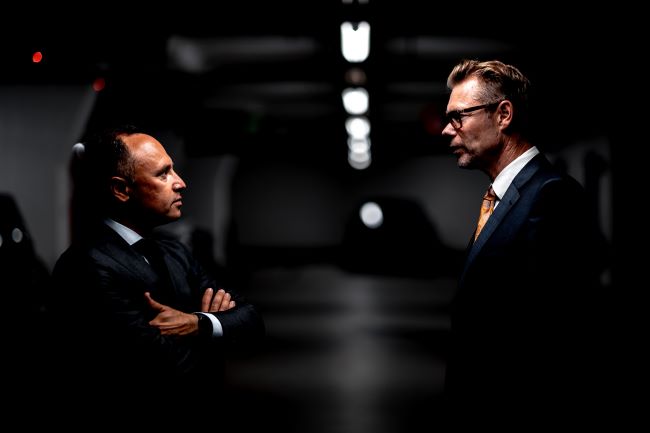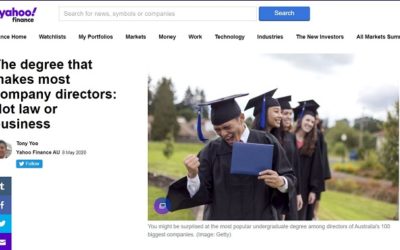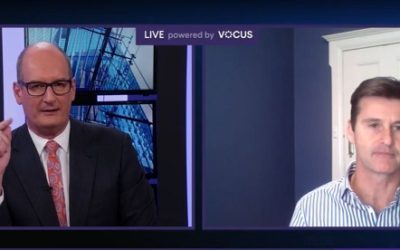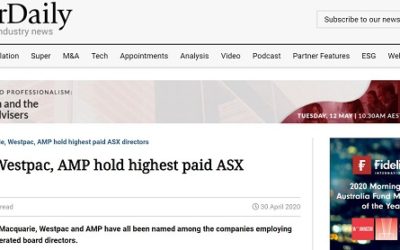Adam Connolly
September 5, 2019
What are the keys to success and how can you learn from them?
Have you ever wondered how some people make it to the top of the corporate world, while other equally talented workers fall by the wayside?
For the first time, these questions have been answered, in the most detailed examination of who our corporate leaders are, and how the community ranks their performance.
What is at stake is not only the reputations of our top CEOs but also those of our largest companies.
The inaugural Apollo Communications Australian Top 50 CEO Report has examined the nation’s top ASX-listed CEOs, including their university choice, country of birth, age, international experience, undergraduate degree, social media use and whether they were promoted from within, to establish their invisible paths to success.What we found is that:
QANTAS boss Alan Joyce is rated by the community as Australia’s best CEO, followed by BHP’s Andrew Mackenzie, Coles’ Steven Cain and Fortescue Metals Group’s Elizabeth Gaines.
AUSTRALIA’S POWER UNIVERSITY is the University of NSW, which educated more CEOs than any other, including Brett Redman (AGL), Andrew Harding (Aurizon), Matt Comyn (CBA), Shemara Wikramanayake (Macquarie) and Craig McNally (Ramsay Health Care).
SCIENCE IS THE CORPORATE POWER DEGREE along with Commerce, followed by No degree, Law, Economics, Engineering, Arts, Other, Business, Medicine and then Psychology.
Science graduates include:
- Alan Joyce (QANTAS)
- Andrew Mackenzie (BHP)
- Patrick Regan (QBE)
- Steven Cain (Coles)
- Francesco de Ferrari (AMP)
- Graham Chipchase (Brambles)
- Julian Segal (Caltex)
- Jack Truong (James Hardie)
- Peter Botten (Oil Search)
- Mark Steinert (Stockland)
- Scott Charlton (Transurban) and
- Ron Delia (Amcor).
Ironically, only two of the Top 50 CEOs, Steve Johnston of Suncorp and Graham Kerr of South32, competed a Bachelor of Business degree.
High Schools Remain a Viable CEO Pathway
Six of our Top 50 CEOs only have a high school qualification. They include:
- Peter Harmer (IAG)
- Trevor Croker (Aristocrat Leisure)
- Stuart Irving (Computershare)
- Gregory Goodman (Goodman Group)
- Peter Allen (Scentre Group); and
- Bob Johnston (GPT Group).
This suggests that while tertiary education is important, solid work experience in itself remains a viable option to the top.
Power Age
Australia’s forgotten generation – Generation X – has quietly taken over the running of the country from the last of the Baby Boomers in the last 12 months, with the average age of our corporate leaders now 54 (born 1965), compared to 58 years old in the United States. The torch has certainly passed to a new generation of leaders in Australia.
Multiculturalism Works
A remarkable 24 of our top 50 CEOs were born overseas, compared to only three per cent of the US Fortune 500.
These include:
- Italy’s Francesco de Ferrari (AMP)
- New Zealand’s Shayne Elliott (ANZ)
- Vietnam’s Jack Truong (James Hardie)
- India’s Sandeep Biswas (Newcrest Mining)
- Columbia’s Alberto Calderon (Orica), and
- South Africa’s Brad Banducci (Woolworths).
Loyalty Pays
With two-thirds of Australia’s top 50 CEOs being internal appointments, proving that Board directors prefer to appoint someone they already know than run the risk of failure with an outsider.
Social Media
Social media remains a scary concept for many CEOs, with 34 per cent having no presence on LinkedIn, Twitter or Facebook, despite it being a popular communications choice for many of their customers.
However, how do these factors above align with community expectations of how CEOs should behave?
In short, our top corporate leaders have a trust problem.
Recent crises in the banking, broadcast and aged care sectors have clearly had an impact on the reputations of our most powerful CEOs.
The number one trait that customers and shareholders want to see is ethical and trustworthy behaviour, rather than traditional measures of performance like company profitability.
Only 13 per cent of Australians believe our CEOs are trustworthy, helping explain why 60 per cent believe CEOs should be subject to more regulation.
A clear majority of 63 per cent don’t know what to think of the morality of our corporate CEOs. This points to a collapse in trust between our corporate leaders and their customers.
This may help explain why when a company has a crisis, the Australian community is unforgiving. 63 per cent of Australians believe both the Chair and CEO should resign, with 15 per cent believing the sword should fall on the CEO only, and eight per cent believing it should fall on the Chair.
Nevertheless, all is not completely lost, with two in five Australians believing that Australian CEOs exhibit generally good leadership qualities. A further third believe they don’t and 28 per cent don’t know.
What does all this mean?
Anonymity appears to be one of the greatest challenges for our corporate leaders. When asked who was Australia’s best CEO, most of the top 50 leaders were outranked by “Haven’t heard of any of them” or “None of the above”.
This poses questions about whether our corporate CEOs need to be more effective communicators if they wish to rebuild trust with their customers and others they need to reach.
After all, it is not only their reputations on the line, but those of Australia’s largest companies if they wish to bridge the ‘trust deficit’.
Find out more
If you would like to discuss this topic in more detail, please email Adam Connolly at Apollo Communications.
CEO Adam Connolly discusses the ways to help you capture and maintain corporate trust
RepRisk®
The only way to tell whether your corporate reputation can survive a crisis is to measure and monitor what your key stakeholders think and say about you.
Reputation risk management requires external relations activities integrated with risk management practices, a strong operating culture, and corporate preparedness.
Apollo RepRisk® can help strengthen the reputation of any organisation.
NEWS AND MEDIA

Suite 94 | Jones Bay Wharf
26-32 Pirrama Road
Pyrmont NSW 2009







